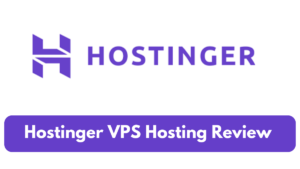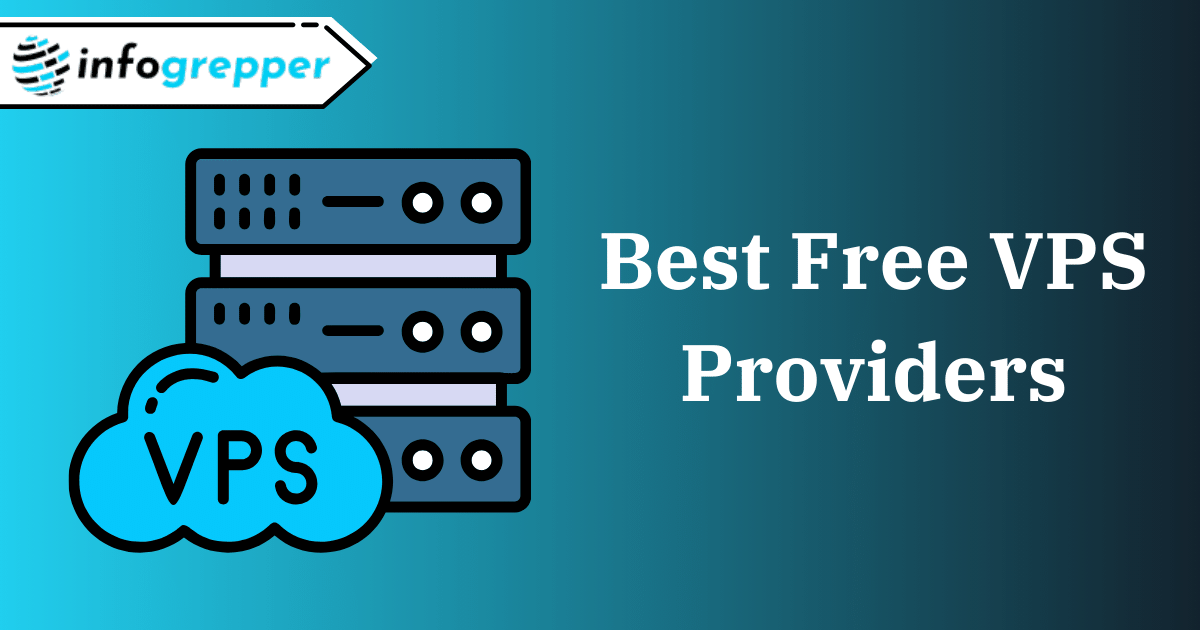“Free VPS” refers to a Virtual Private Server that is provided to users at no cost. A VPS is a virtualized server that acts like a dedicated server within a shared hosting environment.
It provides users with more control and resources than traditional shared hosting, making it popular among developers, businesses, and individuals who require more flexibility and scalability. Free VPS services typically offer a limited amount of resources, such as CPU, RAM, and storage, compared to paid VPS options.
These limitations may include lower performance, fewer features, or restricted usage policies. Free VPS providers may also impose restrictions on usage, such as prohibiting certain types of activities or limiting the duration of use.
Users interested in a free VPS should carefully review the terms and conditions of the service, including any limitations, restrictions, or hidden fees, to ensure that it meets their needs and expectations. It’s also important to consider the reliability, security, and support provided by the VPS provider before making a decision.
Top 5 Cheapest VPS Hosting Options with a Free Trial :
| Provider | Best For | VPS Free Trial | Data Centers | Operating System |
|---|---|---|---|---|
| Hostinger | Best Entry Level Pricing | 30-day money-back guarantee | Several servers in the USA, UK France, Lithuania, India, and Brazil | Linux |
| Domain.com | Best Beginner-Friendly Option | 30-day money-back guarantee | Several data centers in the US and Europe | Windows and Linux |
| HostPapa | Best Security Options | 30-day money-back guarantee | 102 data centers globally, including in the US | Linux |
| DigitalOcean | Best Cloud VPS | $200 Credit Free | USA, Canada, Australia, Germany, India, UK and more | Linux |
| ScalaHosting | Best Value VPS Hosting | 30-day money-back guarantee | Several data centers in the US and Europe | Windows and Linux |
1. Hostinger :

Hostinger VPS, or Virtual Private Server, is a hosting service provided by Hostinger, a company specializing in web hosting services.
A VPS is a virtualized server environment created within a physical server, allowing users to have dedicated resources such as CPU, RAM, and storage, while sharing the underlying hardware with other users.
Hostinger’s VPS plans offer users a higher level of control, flexibility, and scalability compared to shared hosting plans. With a VPS, users have root access to their server, allowing them to install and configure software, customize server settings, and manage security measures according to their needs.
Hostinger offers various VPS plans with different levels of resources and features to accommodate different user requirements and budgets. These plans typically include features such as SSD storage, multiple CPU cores, dedicated IP addresses, and various operating system options like Linux distributions (e.g., Ubuntu, CentOS) or Windows Server.
Features:
- 99.9% server uptime guarantee – if they fail to deliver the promised uptime, you are eligible for a 5% credit of your monthly hosting fee in a particular month.
- Backups and snapshots
- Built-in advanced DDoS protection
- Dedicated IP address
- Full root access
- IPv4 and IPv6 support
- Malware scanner protection
- NFS is not supported anymore due to the switch from OpenVZ to KVM virtualization, which provides more isolation and increases customizability.
Pros :
- Affordable
- Customer support is multilingual
- Great server specs
- VPS AI Assistant
- Weekly Backup and 1 Free Snapshot
Cons :
- No unlimited storage
- No option for Windows VPS hosting
Read This Blog : Best Hosting Services For Magento Hosting
2. Domain.com :

Domain.com VPS refers to Virtual Private Server hosting services provided by Domain.com. A VPS is a type of hosting where a physical server is virtually divided into multiple virtual servers, each operating independently with its own resources like CPU, RAM, and storage.
This allows users to have more control and customization over their hosting environment compared to shared hosting, while still being more affordable than dedicated servers.
With Domain.com VPS, users can host websites, applications, or other online services with greater flexibility and scalability.
Features:
- 99.99% Uptime Guarantee
- cPanel/WHM
- Free domain name
- Instant provisioning
- Root access and SSH
- SSL Certificate
- Unlimited domains and websites
Pros :
- Easy-to-use dashboard
- Fast server speeds
- Multi-server and file management
Cons :
- Doesn’t support Windows servers
- No SLA (minimum uptime guarantee) is offered
3. HostPapa :

HostPapa VPS (Virtual Private Server) is a hosting service offered by HostPapa, a web hosting company.
With HostPapa VPS, customers can have their own virtual server environment that operates independently of other users on the same physical server. This means users have more control over their server configuration, resources, and security compared to shared hosting options.
HostPapa VPS plans typically include features like dedicated resources (CPU, RAM, storage), root access, choice of operating system, and scalability options to accommodate varying levels of website traffic and resource demands.
Features:
- 99.9% Network SLA Guarantee – if uptime falls below the given guarantee, you will receive equivalent credit calculated by HostPapa’s billing team.
- Brute force detection
- cPanel control panel
- DDoS protection
- Dedicated IP addresses
- FTP accounts
- FTPS
- IP deny manager
- Migration assistance (with their fully managed VPS plan)
- Monitoring tools
- MySQL 5.7 databases
- RAID redundancy
- Root access SSH (not applicable with their fully managed VPS plan)
- Server firewall
- SSL Certificate
Pros :
Cons :
4. DigitalOcean :

DigitalOcean VPS stands for Virtual Private Server provided by DigitalOcean, which is a cloud infrastructure provider.
A VPS is a virtualized server that operates within a larger physical server. DigitalOcean offers VPS hosting services where users can deploy their applications, websites, or services on virtual servers in the cloud. These VPS instances are isolated from each other, providing users with dedicated resources and control over their environment.
DigitalOcean’s VPS offerings include various configurations of CPU, memory, and storage, allowing users to choose the resources that best fit their needs. Users can also easily scale their VPS instances up or down depending on their requirements.
Features:
- Avoid single points of failure by assigning publicly accessible static IP addresses.
- Easy app building and deployment
- It helps you to securely and efficiently collaborate on projects with unlimited users.
- Load balancing helps you to distribute incoming traffic across a group of droplets.
- You can attach secure and scalable SSD-based Block Storage to your VPS Droplet.
- You can collect metrics on visibility, monitor Droplet performance, and get instant alerts when problems arise in your infra.
- You can secure your VPS with free cloud firewalls
- You can store and deliver vast amounts of content with S3-compatible Spaces.
- You can use snapshots to backup indefinitely and use them to create new Droplets (VPS).
Pros :
- 100% control over the VPS.
- Availability of APIs with third-party tools.
- User-friendly interface and management system.
- You can upload your customized OS and make it simple to migrate and scale to your preferred environment to the cloud.
Cons :
- Doesn’t support OS such as Windows.
- No backup or redundancy feature
- Overcharging customers even after logging out from the server.
5. ScalaHosting :

ScalaHosting VPS, or Virtual Private Server, is a type of hosting service provided by ScalaHosting, a web hosting company. In this setup, a physical server is divided into multiple virtual servers using virtualization technology.
Each virtual server operates independently with its own operating system, resources (such as CPU, RAM, and storage), and software applications.
ScalaHosting VPS offers users more control, flexibility, and scalability compared to shared hosting plans, as they have dedicated resources allocated to their virtual server.
This allows users to customize their server environment according to their specific needs and requirements.
Features :
- Custom robust SPanel control panel that has all the features as cPanel but also supports Nginx and OpenLiteSpeed servers and has a lightweight (can even run-on VPS less than 1 GB RAM) resource usage.
- Dedicated IP address
- For example, if your uptime is 99.98%, you will receive a 10% credit that will be transferred to your account in seven days.
- Free snapshots
- Free website migration
- HTTP/3 support
- Root access
- Scalable resources (bandwidth, storage, RAM, etc.)
- SShield is state-of-the-art security protection that blocks 99.998% of the incoming threats to your website and monitors your site in real-time
- Uptime Guarantee – In case they are not able to provide the promised uptime, then you are eligible for credit depending on your downtime.
Pros :
- In case of less than 99% of uptime, you receive a 100% credit
- Offers unmetered bandwidth
- Option to build a custom server
- Private nameservers
- Softaculous app installer
Cons :
- Limited data center locations
4 Best Free VPS Hosting Solutions :
1. Alavps :

Alavps is a hosting company that offers a free plan for shared hosting and dedicated servers, along with other hosting services. The free plan includes 1 CPU core, 25 GB SSD storage, 1 GB RAM, and 1 TB bandwidth. Alavps also offers a 100% uptime guarantee, weekly backups, and constant monitoring.
Alavps is headquartered in the U.S. and doesn’t share much information about itself, including when or where it was founded. Some say that Alavps is a scam, while others praise its security features.
2. Amazon Web Services (AWS) Hosting :

Amazon Web Services (AWS) does not offer a Virtual Private Server (VPS) in the traditional sense. Instead, AWS provides a wide range of cloud computing services, including Elastic Compute Cloud (EC2), which allows users to rent virtual machines (VMs) on which they can run their applications.
With AWS EC2, users can select from various instance types with different configurations of CPU, memory, storage, and networking capacity. These instances can be easily scaled up or down based on demand, and users have full control over their virtual machines, including operating system selection, configuration, and management.
While similar to a VPS in terms of providing virtualized computing resources, AWS EC2 offers greater flexibility, scalability, and additional features such as load balancing, auto-scaling, and integration with other AWS services.
3. Free VPSHosti :

Free VPSHosti is a type of virtual private server (VPS) hosting service that offers users access to a virtualized server environment at no cost. VPS hosting allows users to have their own virtualized instance of an operating system, which they can use to host websites, applications, or perform other computing tasks.
However, it’s important to note that free VPS hosting services often come with limitations compared to paid options. These limitations may include restricted resources such as CPU, memory, storage, and bandwidth, as well as fewer features and support options.
Additionally, free VPS hosting services may be subject to downtime, slower performance, and less reliable infrastructure compared to paid alternatives. Users considering free VPS hosting should carefully review the terms of service and assess whether the limitations meet their needs.
4. InstaFree :

InstaFree VPS is a virtual private server (VPS) hosting service provided by InstaFree. A VPS is a virtualized server that acts like a dedicated server within a larger physical server infrastructure.
InstaFree offers VPS hosting solutions that allow users to have more control over their server environment compared to shared hosting plans. With InstaFree VPS, users can typically customize their server settings, install software, and manage their hosting environment more independently.
This type of hosting is often chosen by individuals or businesses that require more resources and flexibility than what shared hosting can provide.
Conclusion :
free VPS hosting can be a viable option for individuals or small projects with limited resource requirements and budget constraints. It offers cost-effectiveness, flexibility, and opportunities for learning server administration.
However, it’s essential to be aware of the limitations, such as restricted resources, limited support, and potential reliability issues. Before opting for free VPS hosting, carefully evaluate your project’s needs, consider the trade-offs, and ensure that the chosen provider meets your requirements.
For critical applications or production websites, upgrading to a paid plan with better support and resources may be necessary to ensure reliability and performance.
Frequently Asked Questions :
1. What is free VPS hosting?
- Free VPS hosting is a service that provides users with access to a virtual private server without charging any fees. It allows users to host websites, applications, or other online services without the cost typically associated with renting a server.
2. What are the advantages of free VPS hosting?
- Cost-effectiveness: Free VPS hosting eliminates the need to pay for server resources, making it an economical choice.
- Flexibility: Users can typically customize their server environment according to their specific needs.
- Learning opportunities: It can be a valuable learning experience for individuals interested in server management and administration.
3. Are there any limitations with free VPS hosting?
- Limited resources: Free VPS plans often come with restrictions on CPU, RAM, disk space, and bandwidth.
- Support: Free plans may offer limited or no technical support compared to paid hosting services.
- Reliability: Free VPS hosting may not provide the same level of uptime and performance guarantees as paid options.
4. What types of projects are suitable for free VPS hosting?
- Personal websites or blogs
- Small web applications or development projects
- Learning and experimenting with server administration
- Hosting lightweight services or applications with low traffic
5. How can I find reputable providers offering free VPS hosting?
- Research online reviews and user experiences to find reliable providers.
- Look for providers that offer transparent terms and conditions, including any limitations or restrictions.
- Consider well-established hosting companies that have a track record of providing quality services.
















